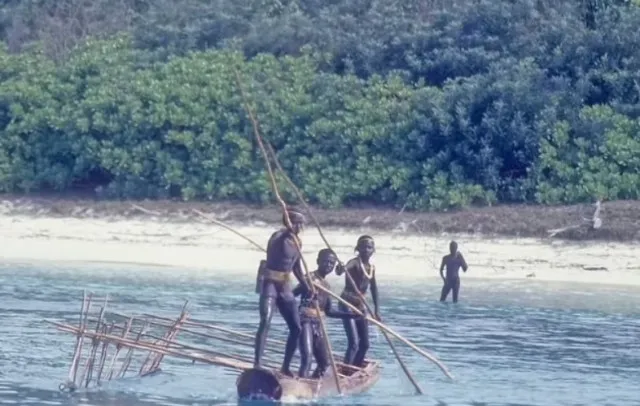A US tourist is arrested for sailing to a remote island and leaving a Coke, potentially endangering an isolated tribe.
A U.S. tourist was arrested after he sailed to a forbidden island and left a can of Coke for an isolated tribe.
This incident has raised serious concerns about the safety of both the tourist and the tribe.
US tourist illegally visited world’s most isolated tribe and leaving can of Coke for them to try
Mykhailo Viktorovych Polyakov, a 24-year-old man, traveled to India’s Andaman and Nicobar Islands.
On March 26, he arrived in Port Blair, the capital city, and planned his trip to North Sentinel Island.
This island is known for being home to the Sentinelese, one of the most isolated tribes in the world.

Three days later, Polyakov set off from Kurma Dera Beach. He sailed across a challenging 25-mile stretch of water to reach the island.
He arrived at the northeastern shore on March 29 around 10 a.m. Using binoculars, he tried to spot signs of life on the island.
Once on the island, Polyakov spent about five minutes there. He collected sand samples, recorded a video, and left behind a can of soda and a coconut as offerings for the Sentinelese.
He believed these gifts would be welcomed, but experts warned that his actions were reckless.
The Sentinelese are known to be hostile toward outsiders. They have attacked those who approached their territory in the past.
Experts have stated that such contact poses risks, not only to the visitor but also to the tribe, who have no immunity to common diseases.

The US tourist arrested for his disturbing action
After Polyakov left the island, local fishermen spotted him and reported his activities to the police.
Authorities arrested him shortly after he returned to the beach.
They seized his boat, an outboard motor, and a GoPro camera containing footage of his actions on the island.
Indian officials have strict rules against visiting North Sentinel Island. These rules are in place to protect the Sentinelese from outside threats.
The police are now investigating Polyakov’s plans and any other locations he may have visited during his stay in the region.
“We are getting more details about him and his intention to visit the reserved tribal area,” Andaman and Nicobar Islands’ Director General of Police told the newspaper.

Contact with outsiders endangers the Sentinelese tribe’s survival.
Caroline Pearce, the director of an indigenous rights group, criticized Polyakov’s actions as dangerous.
She noted that the Sentinelese have made it clear they want to remain isolated. Contact with outsiders can expose them to diseases that could wipe them out.
Pearce pointed out that uncontacted peoples lack immunity to common illnesses like the flu or measles. These diseases could have devastating effects on the tribe.

The Indian government has a responsibility to ensure the safety of the Sentinelese and prevent any contact with them.
“This person’s actions not only endangered his own life, they put the lives of the entire Sentinelese tribe at risk,’ she said in a statement.
“It’s very well known by now that uncontacted peoples have no immunity to common outside diseases like flu or measles, which could completely wipe them out.”
Similar case of attempting to approach an isolated tribe
This is not the first time someone has attempted to make contact with the Sentinelese.
In 2018, an American missionary named John Chau killed by the tribe when he tried to reach them.
Despite warnings about the dangers, Chau went ahead, believing he could help them spiritually. His tragic fate emphasizes the risks involved in attempting to contact isolated tribes.

The Indian government has since strengthened its policies to protect the Sentinelese and discourage any attempts by outsiders to interact with them.
“It’s good news that the man in this latest incident has been arrested, but deeply disturbing that he was reportedly able to get onto the island in the first place,” Pearce said.
“The Indian authorities have a legal responsibility to ensure that the Sentinelese are safe from missionaries, social media influencers, people fishing illegally in their waters and anyone else who may try to make contact with them.”